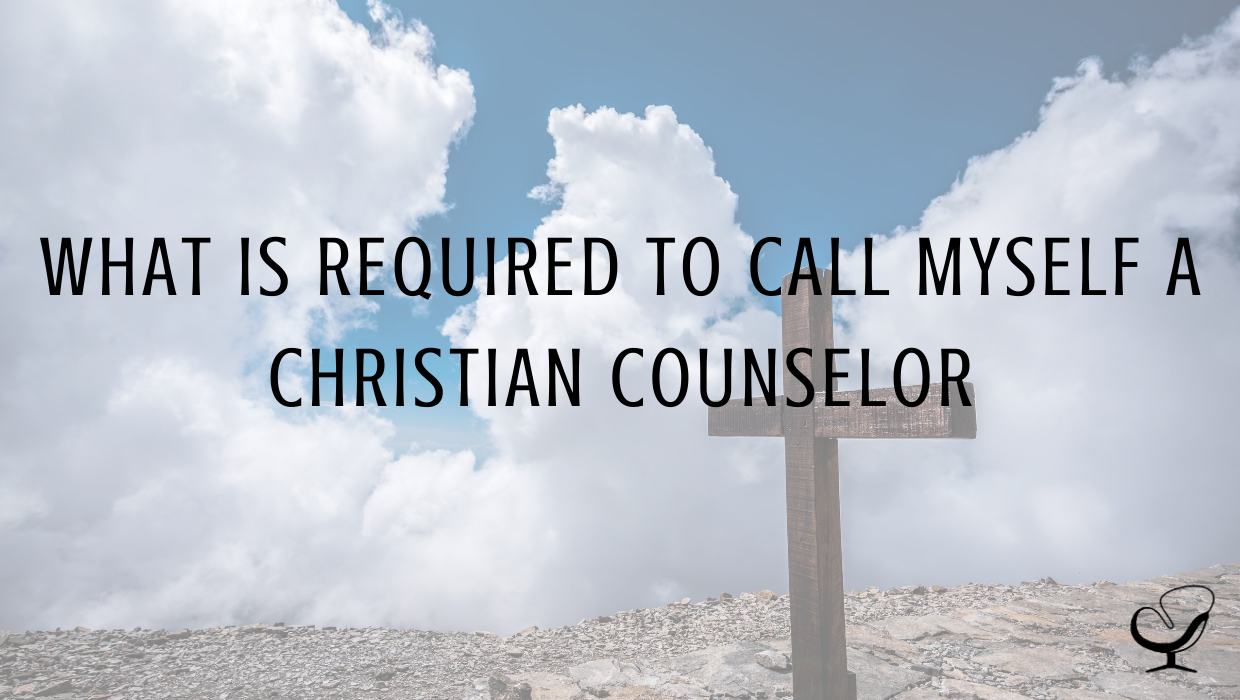“What is required to call myself a Christian counselor?” is one of the most common questions I hear as a consultant. People often wonder if they need a special certification or training to be labeled a “Christian counselor”. Or, therapists wonder if their knowledge of Christianity and the Bible are strong enough to give themselves this title. I am here to say there is no specific training that I have heard of that is required to call yourself a “Christian Counselor”. But, I do think there are some clinical and ethical considerations that one must examine before giving themselves this title.
Completion of a Masters Degree in Counseling or a related mental health field
In most states, it is considered a violation to call yourself a counselor without the appropriate earned master’s degree. Therefore, if we are going to hang a shingle outside our office with the word “counselor” on it, we need to make sure we have completed the degree. All states have different requirements and terminology for our profession and what you can and cannot call yourself. I advise you check the board rules for your state. Regardless, you must get the degree to call yourself a counselor.
Basic knowledge of the Christian faith
Most people do not call themselves a Christian without a personal belief in Christianity. If
you advertise yourself as a Christian Counselor, you need to have some understanding of the religion and ability to understand concerns of faith brought into the therapy room. But, it does not mean that faith is all you talk about. As a counselor, you are there to first work through clinical issues. Though as a Christian counselor, you are also able to address Christianity in a therapeutic way to help the client with clinical and religious concerns.
Understanding of when to refer out to clergy
To be a Christian counselor does not mean that you must know everything about the Christian faith. In fact, that is what seminary is for, not clinical counseling school. We discuss faith as it relates to clinical topics. If clients have questions about their religion that you are not knowledgeable about, it is best to refer them to their pastor or another clergy. This is the same as if clients present with other issues such as an eating disorder, we refer out to an experienced counselor in eating disorders.
If you are looking to learn more about how to connect with clergy, check out this podcast episode.
Ethical training in Christian counseling
There is no specific required training to be a Christian counselor. However, it is advised that you receive some type of ethics training on how to appropriately integrate your faith in your clinical work. Many graduate programs make this a part of the curriculum if you are doing a counseling program as a Christian University. This sets a good foundation for your work with Christian clients. If you went to a secular program, do not fear. There are lots of training out there and some that offer certificates, if you would feel more comfortable obtaining that to call yourself a Christian counselor. And, even if you went to a Christian University, it is important that you regularly update your knowledge of ethical considerations within the Christian counseling world on a regular basis.
Get consultation and information from others
As you grow in your own faith and as a clinician, be sure to do your own work. We can only take our clients as far as we are willing to go ourselves. Also, be in community with other Christian counselors. This will make it so that you can do peer consults and challenge one another in your work with clients. There are numerous books and other resources available to help you appropriately integrate your faith with clients. Take time to invest in this side of your education as a counselor.
If you are looking for a supportive group of faith-based clinicians who can help you and hold you accountable, you can join the Faith in Practice community in a number of ways.
- We have a free FaceBook group for those starting and growing their faith-based practices.
- Join the Faith in Practice email list: new practice owners and established practice owners
- Listen to the Faith in Practice podcast.
- Consulting for your faith-based practice. If you want to take your practice to the next level, click here.
 Whitney Owens
Whitney Owens
Whitney Owens is a licensed professional counselor and owns a growing group practice in Savannah, Georgia. Along with a wealth of experience managing a practice, Whitney has an extensive history working in a variety of clinical and religious settings, allowing her to specialize in consulting for faith-based practices and those wanting to connect with religious organizations.
Role within Practice of the Practice
- Consulting for Faith-Based Practices
- Consulting for Private Pay Practices

